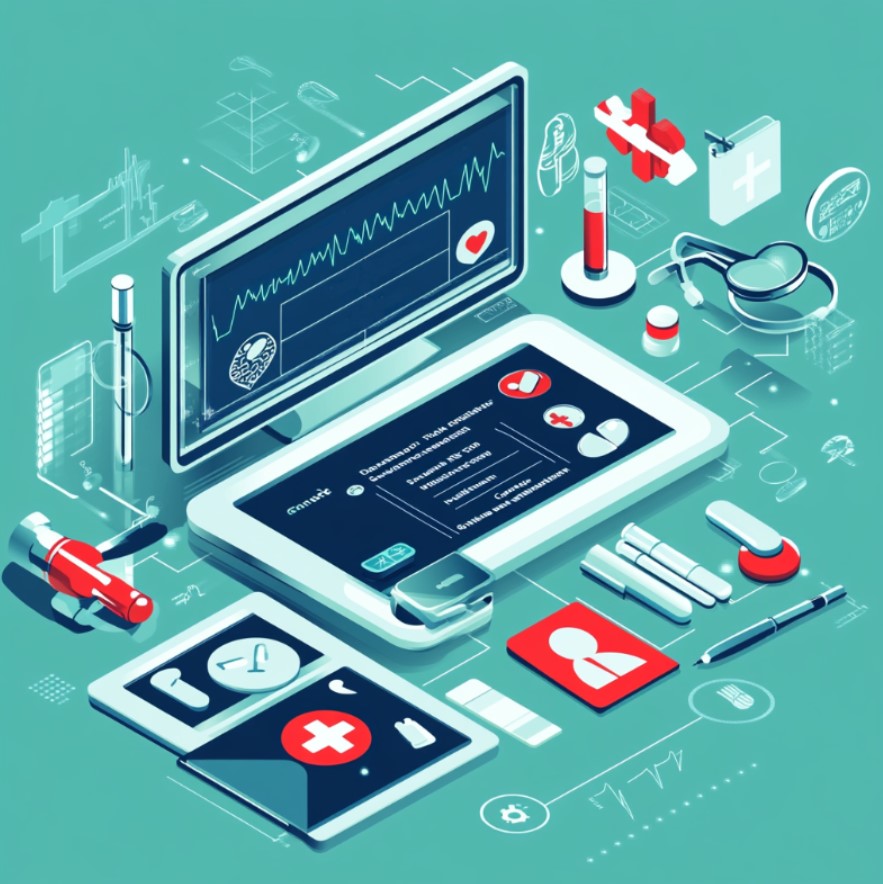In the ever-evolving healthcare landscape, managing patient relationships effectively is crucial for providing high-quality care. Off-the-shelf customer relationship management (CRM) solutions may not always meet the specific needs of healthcare organizations. Custom CRM development, offered by a specialized software development company, ensures tailored solutions that align with the workflows of hospitals, clinics, and private practices. By leveraging industry expertise and advanced technologies, a software development company can create scalable, secure, and efficient CRM systems that enhance patient engagement and streamline operations. This article explores the importance of custom CRM in healthcare, detailing its features, benefits, challenges, and development process.
The Need for Custom CRM in Healthcare

Healthcare organizations handle vast amounts of sensitive patient data. Generic CRM systems often lack the flexibility to accommodate industry-specific requirements such as compliance with regulations like HIPAA. Custom CRMs allow seamless integration with electronic health records (EHRs), insurance providers, and appointment scheduling tools. They also facilitate personalized patient engagement, improving overall care and operational efficiency.
| Factor | Importance | Impact |
| Data Sensitivity |
|
|
| Integration Capability |
|
|
| Patient Engagement |
|
|
Key Features of a Healthcare CRM

A custom healthcare CRM includes patient data management, appointment scheduling, automated reminders, and integration with telehealth services. It also supports secure messaging between patients and healthcare professionals, AI-driven predictive analytics for patient needs, and workflow automation to reduce administrative burdens. Additionally, the CRM must prioritize security and compliance, ensuring adherence to healthcare regulations.
| Feature |
|
|
| Appointment Scheduling |
|
|
| Secure Messaging |
|
|
| AI Predictive Analytics |
|
|
Benefits of Implementing a Custom CRM

By adopting a custom CRM, healthcare organizations experience improved patient engagement, reduced administrative workload, and better coordination among medical staff. Enhanced communication through automated alerts and secure messaging minimizes errors and ensures timely interventions. Moreover, data-driven insights help in proactive patient management, reducing hospital readmission rates and optimizing resource utilization.
| Benefit | Impact on Healthcare | Outcome |
| Improved Patient Engagement |
|
|
| Reduced Administrative Work |
|
|
| Better Staff Coordination |
|
|
Challenges in Developing a Custom Healthcare CRM

Despite its advantages, developing a custom CRM poses challenges such as high initial costs, the complexity of integrating with legacy systems, and ensuring compliance with industry regulations. Organizations must also invest in training medical and administrative staff to effectively use the CRM. Addressing these challenges requires a strategic approach, including collaboration with experienced developers and healthcare IT consultants.
| Challenge | Solution Approach | Difficulty Level |
| High Initial Cost |
|
|
| Legacy System Integration |
|
|
| Staff Training |
|
|
Steps to Develop a Custom Healthcare CRM

The development process begins with a comprehensive needs assessment, followed by designing a scalable architecture. Key steps include defining user roles, implementing core features, ensuring data security, and conducting rigorous testing. Post-deployment support and regular updates are essential to maintaining optimal system performance. Partnering with a skilled CRM development team ensures that the system evolves with technological advancements and regulatory changes.
| Step | Description | Purpose |
| Needs Assessment |
|
|
| System Design |
|
|
| Testing & Deployment |
|
|
Conclusion
A well-designed custom CRM empowers healthcare organizations to enhance patient care, streamline operations, and improve regulatory compliance. While challenges exist, the benefits of personalized patient engagement and operational efficiency make custom CRM development a worthwhile investment. By collaborating with an experienced software development company or a web development agency, healthcare providers can ensure a seamless, user-friendly, and secure CRM system tailored to their needs. Prioritizing security, scalability, and integration with existing systems, a dedicated development team can help build a robust CRM solution that fosters better healthcare outcomes.

Leave a Reply